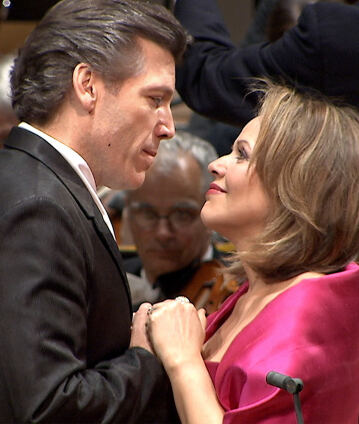Interview
Christian Thielemann, Renée Fleming et Thomas Hampson parlent de Richard Strauss Une soirée Richard Strauss avec Christian Thielemann, Renée Fleming et Thomas Hampson

Christian Thielemann a un jour déclaré que, dans la musique de Richard Strauss, il recherche « l’équilibre entre deux choses qui semblent s’exclure mutuellement : la transparence et l’ivresse ». Cette soirée Strauss prouve que le chef d’orchestre maîtrise à merveille cet équilibre délicat. Invités vedettes de la soirée, Renée Fleming et Thomas Hampson chantent de voluptueux lieder avec orchestre et des extraits de l’opéra Arabella.
Berliner Philharmoniker
Christian Thielemann
Renée Fleming
Thomas Hampson
© 2011 Berlin Phil Media GmbH
Interviews liées au concert
Interview
Thomas Hampson à propos de la musique classique dans les médias numériques Artistes
Nos suggestions
- Concert de bienfaisance « Ensemble pour plus d’humanité »
- A “Night of Love” with Ion Marin and Renée Fleming at the Waldbühne
- Christian Thielemann et Maurizio Pollini dans le Concerto pour piano n° 21 de Mozart
- Christian Thielemann et Albrecht Mayer dans des œuvres de Strauss et Bruckner
- Christian Thielemann dirige la « Missa solemnis » de Beethoven
- Christian Thielemann et Gidon Kremer